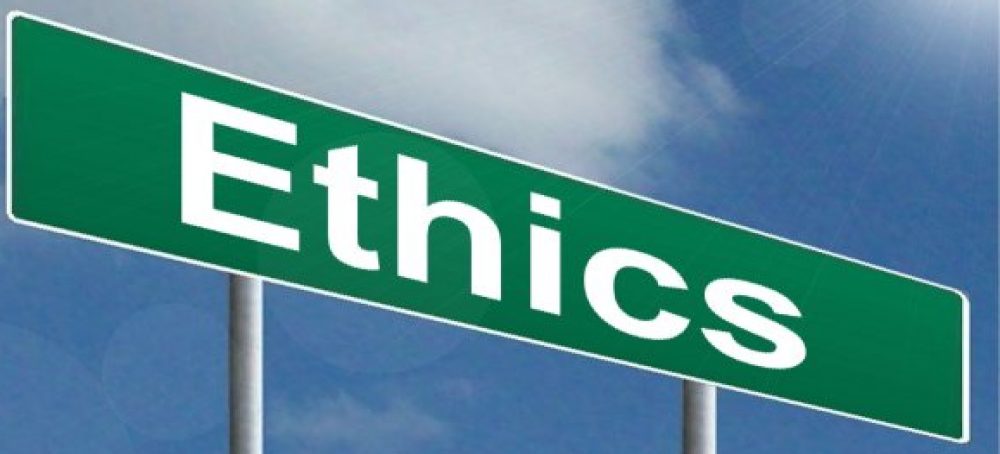Morality, Spirituality and Religion? – Varghese Pamplanil

Varghese Pamplanil
Etymologically, the term “moral” comes from Latin mos — which means, custom or habit: it is a translation of the Greek ethos (ethics) which roughly means the same thing. In contemporary non-technical use, the two terms are more or less interchangeable. Morality is a set of customs and habits, we believe would guide us to live good human lives.
The word ‘’Religion” would, probably, have been derived from the Latin religare means: to bind back. Religion could be defined as a system of beliefs and practices that are meant to foster or “bind” groups.
Morality
According to one view Morality is not divine derived or of divine origin; it is about human and solely human. Morality distinguishes between "good desires" and "bad desires", with the option to choose either of them. "Spirituality" demands rejection of desires altogether.
Morality is the code of behaviour of an individual or of a society: etiquette is a set of rules for well mannered behaviour. Etiquette may be either unwritten codes or written down rules of social or professional behaviour. Morality need not necessarily be based on religion as many people think. The sense of morality is: feeling of rightness or wrongness of an action and the ability to distinguish between good and bad.
Since the ancient times philosophers have been concerned with the issues of spirituality. Bertrand Russel (1872-1970), wrote “philosophy is a reflection on subjects of which knowledge is not yet possible”. The concept of spirituality has not been clearly defined or unambiguously interpreted. Desecrates equates spirituality with “wisdom”. To Kant spirituality is “supernatural inner strength.”
The Indian view of Spirituality
According to the orthodox Indian philosophical view, spirituality is achieving perfection through four goals of life: “artha” (prosperity), “kama” (desire), “dharma” (righteous living) and the fourth: “ultimate goal of life —moksha”. Spirituality in India is not just an esoteric philosophy or practice, it could befound in the most commonplace routines and daily life. The Indian spiritual traditions encompass Hindus, the erstwhile Nazarenees of the Malabar Coast. The Indian branches of the Sufi tradition also retain their Hindu traditions.
When the Portuguese reached the shores of Malabar,in the late 15th century, they came across followers of Jesus Nazareth — Nazarenees — who had been maintaining close links with the Hindu society. The places of worship of the Nazarenees were modelled on Hindu temples. In fact, Vasco da Gama worshipped in a shrine to goddess Bhagavathi, mistaking it as a chapel to the Madonna. Hindus and Nazarenees were interacting freely; hardly any distinction either in their habits, festivals, hairstyle or in anything else. As late as the closing years of the 16thcentury, there was tolerance of intermarriage between these two communities. The Portuguese missionaries, by dubious means, brought a section of the Nazarenees under the suzerainty of Roman Catholicism.
Studies demonstrate that the Indian philosophical and religious concepts such as karma, dharma, atman and the notion of rebirth have considerable influence in the Indian perceptions of spirituality and life after death.
According to Swami Vivekananda (1863-1902), every nation has a particular ideal running through its whole existence in the background. Some of it is found in social and political fields, others in intellectual sphere. To Swami Vivekananda, religion also denotes spirituality.
Swamiji arrives at the conclusion: unity is diversity, the very core structure of the universe. According to him: this aspect can be discerned in different situations.
Christian Morality and Ethics
Christian ethics has evolved from Greek thoughts that define “virtuous behaviour and wrong behaviour”. Recently, Alasdair Macintyre and Stanly Hauerwas have dwelt upon Christian morality in the context of issues such as how the rich should treat the poor, the women and other vulnerable people. The morality of war too was examined.
Simon Blackburn says that the “Bible can be read as giving us a carte blanche for harsh attitudes to children, the mentally handicapped, the divorced, unbelievers, people with various sexual habits,elderly women, animals environment etc." He picks out morally suspect themes in the New Testament. He also draws attention to some “moral quirks” of Jesus, which he suspected as “sectarian”. {Matthew 10:5-6, “racist” (Matthew 15: 26 and Mark 7:27 as well as “viewing animal life as of no value” (Luke 8:27-33).
Elizabeth S. Anderson. Professor of Philosophy and Women Studies, at the University of Michigan states: “the Bible contains both good and evil teachings”; it is “morally inconsistent”. Her conclusion: “Here are religious doctrines that on their face of it give approval to mercilessly punish people for the wrongs of others, and for blameless error, that licences, even command murder, rape, torture, slavery, ethnic cleansing and even genocide. We know such actions are wrong.” She points out that Paul and Peter elevate males over females: “wives must obey their husbands” (1 Corinthians 11: 3, 14: 34-5, Eph. 5:22 -24, Col. 3: 18, Tim. 2: 11-2, Pet. 3:1).
Religion and Morality
Primordial religion emerged when people attempted to explain “why good and bad things happen”. Initially religion did not concern itself with morality or moral dimension of human actions. Edward Tylor observes that primitive religions were devoid of ethical element. In the primitive societies moral behaviour stood independent of any religion. Punishment for wrongdoing by any one of the group was dealt by the group itself. It was not left with any deity to punish the offender. Hunter-gatherer societies consisted of less than 100 members. In such a situation almost all in the groups were related. Any wrongdoing was difficult to conceal. Departures from honesty and probity could be detected and addressed often enough to dissuade deviations becoming rampant. Social order could be preserved without the need for intervention of any religion. The realisation that one has to live the rest of one’s life in the group was a strong incentive for behaving decently. Cooperation and mutual help was essential for survival.
There are those who say that without religion, humans would be amoral. This viewpoint is apparently wrong. We are born moral animals. We don’t need any religion for not being immoral monsters as some faiths would have us believe. If our ancestors had no sense of right and wrong; in whichever way the terms are interpreted, they would not have survived as social groups. Morality is not a learned behaviour without inborn aspects. Yale Psychology professor Paul Bloom and his team found that infants as young as three months old have some innate sense of right and wrong, good and bad and even fair and unfair.
From the beginning of the Abrahamic religions, morality have been closely intertwined with the Semitic milieu whether Judaism, Christianity or Islam. The claim that morality and religion are “inseparable” has persisted till recently. There seems to be a change of perception now inthe sense as much as morality has its niche independent of religion.
Why do some persons opt for spirituality?
A spiritual person is one who believes in Atman/Brahman. Such a person thinks that there is something beyond all things material, an incomprehensible enigma that moves all things like figurines on a carousel or a view that all that being witnessed is ordained by a greater power which by itself is a conscious entity — call it god, soul, spirit, or divinity. Simply possessing this belief in a spirit or a higher realm is enough to qualify oneself as spiritual.
People often confuse spirituality with religion. They can be both religious and spiritual; but it is also possible to be religious without being spiritual or to be spiritual without being religious.
Various studies have reported the correlation between spirituality and mental wellbeing in both healthy people and those encountering a range of physical illnesses or psychological disorders.
People who had un-remediable setbacks, bitter marriages, and other unresolved disappointments in their lives may find peace in spiritual life. Those who lack self confidence and are unsure of their self-worth may tend to be spiritually oriented. The feeble minded over-burdened by guilt complex may also be attracted to spirituality. Some others who have lost interest in life may gravitate towards spiritual life. Those who cannot get along with family members and others,owing to various reasons, may flock to spiritual gurus, ashrams, retreat centres as means of escape from the realities of life. Many who lost life partners, living alone without children/ grandchildren/other close relatives may find solace in kindred groups.The most obnoxious of spirituality votaries may be those who view life as meaningless. Those whose minds are permeated with sin complex may feel that their lives here on Earth are of no consequence; the physical body is the embodiment of evil, may find refuge in spirituality and other worldly existence. Those who take life as it comes and believe that the “purpose of life is life itself” may live a more or less contented lives. They may not seek any pie in the sky after death. Those who do not suffer from nightmares of being roasted in an everburning hell may realise that the charismatic ringmasters and other charlatans are in the religious market selling their malware and spurious products for emptying the pockets of the credulous dumb witted. The priesthood, by and large,instils mortal fear into the psyche of the “goats” solely for fleecing them. The money so looted is apparently spent by the clerics for leading Epicurean lifestyle; they do not seem do any useful deeds.
Some who parade themselves as spiritual persons, may be even sham pretenders trying to hide their personality deficiencies and quirks of character.
An Overview
A synopsis of the article Jonathan Sacks, titled “Why Religions Kill” that appeared in Catholic Herald UK on 19 June 2016,is given below:
First religion and then political ideology died after a prolonged period of intensive care. The age of the true believer, religious or secular, was over. In its place, come the market economy and the liberal democratic state where the individuals’ right to live as they chose took priority over all creeds and codes. It was the last chapter of a story that began in the 17th century, the last age of religious wars. The West had undergone a process of secularisation that took four centuries.
First in the 17th century came the secularisation of knowledge in the form science and philosophy. In the 18th century came the secularisation of power by way of American Independence (4 July 1776) and French Revolution (1789-1790); the separation of powers between the Church and the State; the separation radical in France — less doctrinaire in the US. Then in the 20th century came the secularisation of culture; art galleries and museums were seen as alternatives to churches as places in which to encounter the sublime. Finally in the 1960s came the secularisation of morality by the adaptation of the principle first pronounced by John Stuart Mill a century earlier — that the ground on which any one including the State is justified in intervening in behaviour done in private, is “prevention of harm to others”. This was the beginning of the end of the traditional codes of ethics, to be replaced by “unfettered sanctity of the individual autonomy, rights and choices.”
By the late 20thcentury, most secularists have come to the conclusion that religion, if not refuted, had at least been rendered redundant. We no longer need the Bible to explain the universe. Instead we have science. We no longer need sacred ritual to control human destiny. In its place, we have technology. When we are ill, we have doctors, medicines and surgery; prayer will be of not much help. If we are depressed, there is an alternative to religious consolation — antidepressant drugs. When we feel overwhelmed by guilt, we can choose psychology in the place of the confessional. As for human morality, the best thing to do, is not to think about it too often. People may be uncertain about the existence of God, but are reasonably sure that if we do not “bother HIM, HE won’t bother us.
Science, technology, the free market and the liberal democratic state have enabled us to reach unprecedented achievements in knowledge, freedom, life expectancy and affluence. These greatest achievement of human civilisation are to be defended and cherished.
Religion that has returned now, the 21stcentury, is not the “gentle, quiet, irenic and the ecumenical form” in the West, we had come to expect. Instead “it is religion at its most adversarial and aggressive incarnation”.
Undeniably, the greatest threat to freedom in post-modern world, is radical, politicised religion. It is the “face of altruistic evil in our times”.

















